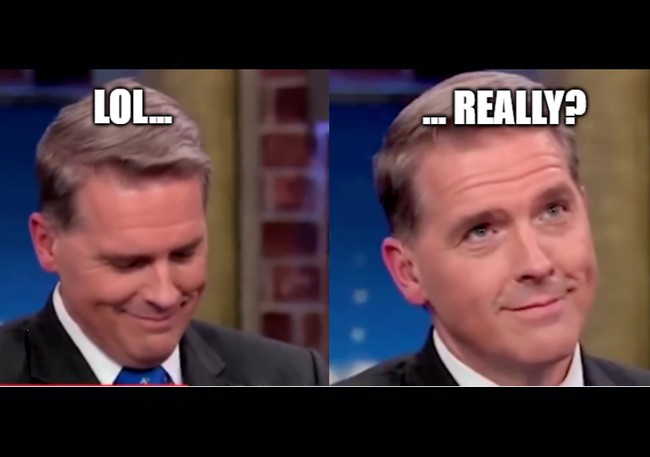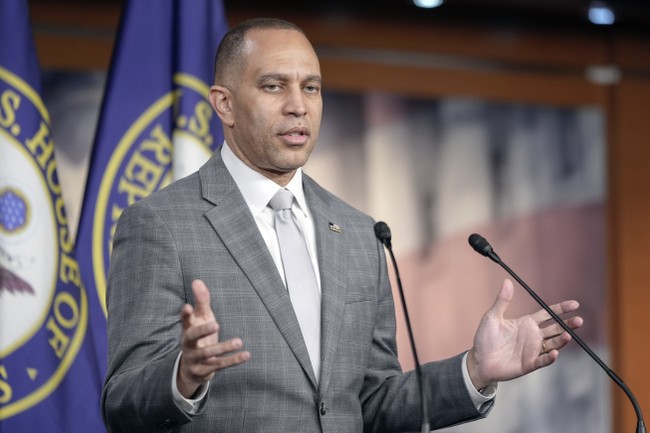ARTICLE AD BOX
LONDON — He’s seen in British politics as a lawyer first and foremost; methodical, professional, good on detail but lacking in flair.
But as opponents have learned to their cost, there’s more to Keir Starmer than meets the eye.
And if the polls are correct — the Labour Party’s lead over the ruling Conservatives is currently more than 20 points — he will become U.K. prime minister at the general election on July 4.
Slowly, the British public has learned more about the character of this buttoned-up, center-left lawyer who leads the opposition party. They have learned, too, the outline of his plans for government — though the finer details of both can prove elusive.
“If you want to understand Starmer’s politics, look at his life before he was a politician,” said one person who knows the 61-year-old well.
Born in London and educated at a selective, state-funded school in Tory-heavy Surrey, south east England, Starmer’s use of soundbites about his run-of-the-mill childhood — “my father was a toolmaker” and “our pebble-dash semi” (an aspirational, lower-middle-class family home) — have become running jokes in Westminster.
But a deeper trauma lies beneath. Starmer’s cold, distant father, Rodney, cared full-time for his mother, who was diagnosed with the rare auto-immune condition Still’s Disease when Keir was 11. “She could barely walk for most of her life … she had to have her limbs cut off,” Starmer told POLITICO in an interview in 2019.
Oversteering and change
Such experiences go some way to explain the left-wing zeal of Starmer’s early legal career.
Famously he represented two eco-activists who took on the might of McDonalds in a notorious legal case in the early 1990s. He subsequently specialized in contentious human rights cases, always fighting for the underdog. (Tory opponents have since seized upon these cases, accusing him of fighting for terrorists.) As Britain’s former Director of Public Prosecutions (DPP) Ken McDonald put it in a profile of Starmer for POLITICO’s Westminster Insider podcast last year: “He came to the bar to represent tenants, rather than landlords.”
But in 2008 Starmer succeeded McDonald as DPP, transforming himself from human rights crusader to arm of the establishment — a legacy he now trades upon to project stability to center-ground voters.
Many detect a similar shift in his personal politics in the years since he became Labour leader in April 2020.
Having joined parliament in 2015, Starmer became shadow Brexit secretary under Jeremy Corbyn the following year. Starmer was always careful not to attack his left-wing leader while Corbyn remained popular with Labour members. But Starmer was careful, too, to appeal over Corbyn’s head to the Europhile sentiment in his party, pushing for a second referendum that might reverse the U.K.’s decision to leave the EU.
 The Labour Party’s lead over the ruling Conservatives is currently more than 20 points. | Christopher Furlong/Getty Images
The Labour Party’s lead over the ruling Conservatives is currently more than 20 points. | Christopher Furlong/Getty ImagesEven in December 2019, after Corbyn resigned following Labour’s worst general election defeat in almost a century, Starmer said his party must not “oversteer” to the center.
His critics on the left say he has done exactly that since winning the leadership, swiftly abandoning the “10 pledges” he made to members during his campaign.
The left of the party has since been further marginalized through candidate selections, steered ruthlessly by a central party machine now under Starmer’s control. And Corbyn himself has been suspended over comments he made about the scale of antisemitism within Labour under his leadership. Starmer vows his former boss — and “friend” — will never return.
‘He’s not tribally Labour’
This journey to the top was no accident. For two years before running for the leadership, Starmer began holding secret prep meetings every Monday with trusted friends and aides.
Starmer is unapologetic about the path he has taken, boasting he has “ruthlessly” changed his party from the Corbyn era and routed the antisemitism within it. To his allies, these changes show a single-mindedness they admire. They say he will focus, step by step, on winning his party, then the country, and then governing it — and that each step will look different to what came before.
“He is instinctively a Labour voter and person, but he’s not tribally Labour,” said the person who knows him quoted above. Starmer does not have his own clique of MPs, and tellingly has hired civil servants to key political jobs including his powerful chief of staff, Sue Gray. He prefers working in Labour’s open-plan HQ to parliament’s gossipy rabbit warren of corridors and tea rooms, and is ill at ease socializing at parliament’s famous terrace bar.
“He doesn’t get it,” the person said. “His friends are real friends, the people he plays football with — he doesn’t see parliament as a social club.”
Hitting pause on PMQs
Starmer’s public style is famously methodical, often to the point of dry. He tries to evolve by micro-analyzing his own performance — his team used to watch video clips of him at Prime Minister’s Questions, his main weekly clash with Sunak, pausing the tape to point out what he had done well and where improvements could be made.
His cautious pragmatism extends to foreign policy too, where — unlike his left-wing predecessor — Starmer often mirrors the government line. Not always; Starmer would like a closer relationship with the EU. But he has supported strikes on Yemen and Iranian drones that were fired towards Israel, and — having called remarks by Donald Trump “repugnant” in 2016 — now says a Labour government will work with whoever wins the White House in November.
Starmer’s hawkish foreign policy stance has caused him problems with his own base. A poorly-worded response after Hamas’ October 7 attacks, in which he suggested Israel had the right to withhold power and water in Gaza, badly damaged relations with Muslim and pro-Palestinian voters. He later clarified his remarks and has since called for a sustainable ceasefire.
Aides now strive to get the more relaxed, human Starmer they see in private across to the public. Last week he launched his “first steps” for government — a pledge card reminiscent of the 1997 election, which Labour won by a landslide — with his shirt sleeves rolled up, a more confident speaking style on display.
But on policy, the finer details are yet to be etched in. His six “first steps” were merely a narrow selection of vague pledges taken from broader “missions” on the economy, energy, the National Health Service, crime and opportunity. Once-radical policies on green investment and constitutional reform have been watered down, even before Labour enters government. Unions fear a bold set of proposals to boost workers’ rights will also be weakened before they are ever written into law.
Building on the green belt
This is partly natural caution from a party which has suffered four successive election defeats. Wounds from the 2010 election — when the Labour government was blamed by Tories (and voters) for the recent economic crisis — still cut deep. Starmer has not ruled out future tax rises under Labour, a fact seized upon by the Conservatives. Without them, his room to improve public services will be severely constrained.
But in other areas, Starmer’s supporters believe he shows a quiet radicalism. He has promised 1.5 million new homes over five years, including on the green belt — a contentious local issue that will swallow some of his capital with affluent voters. A pledge to decarbonize Britain’s entire power network by 2030 is so bold it looks almost impossible to meet.
With Downing Street now almost in reach, Starmer has successfully united the majority of his once-fractious party behind him. He speaks privately to both living Labour ex-PMs, Tony Blair and Gordon Brown. Neither get everything they want, with Blair pushing new technology like AI and Brown calling for Starmer to be more generous on welfare benefits.
The coming weeks may sharpen the edges of Starmer’s politics, just as — if he wins — the avalanche of structural problems facing the U.K. will test his balancing act between caution today and vision tomorrow.
But for now, his campaign message is simple — that it’s time for change, after 14 years of Tory “chaos.” The polls suggest that simple message alone may be enough to see him into Downing Street in July.
.png)
 9 months ago
3
9 months ago
3








 English (US)
English (US)